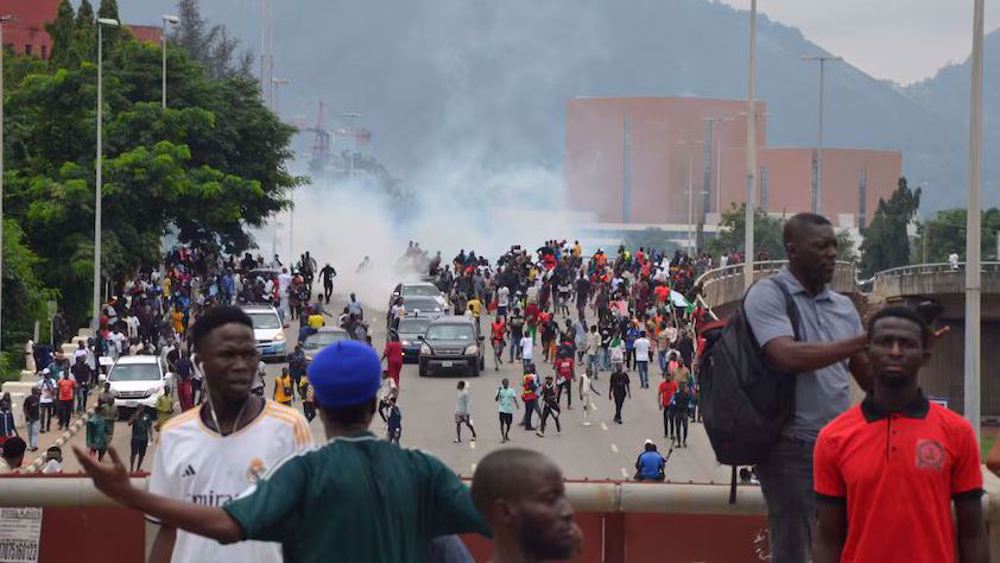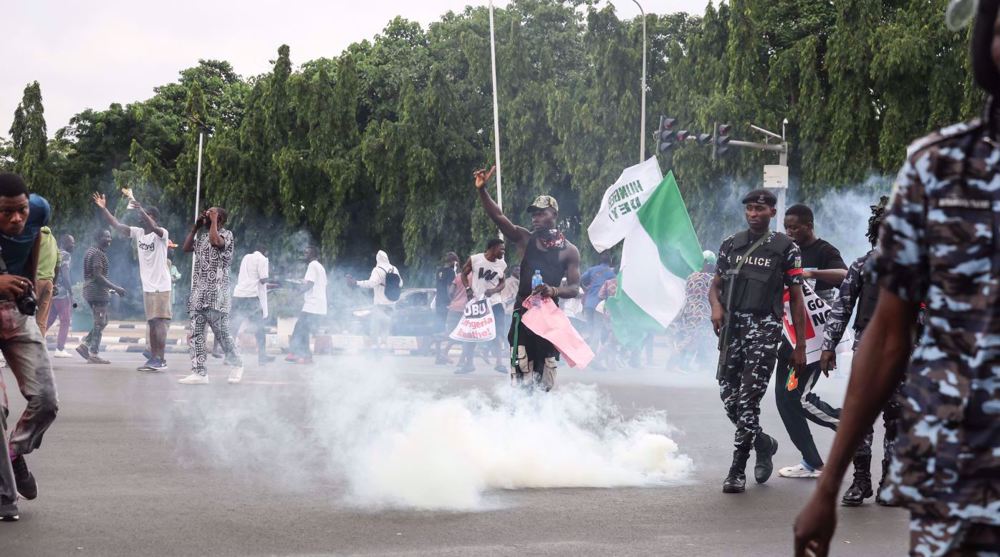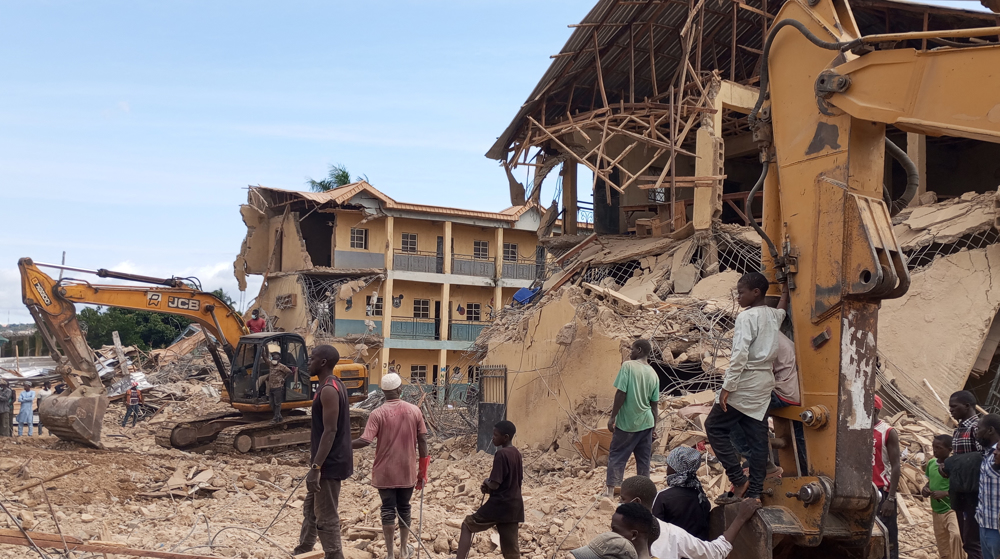100s of Nigerian shias wage protest rally in Abuja to demand Zakzaky's release
Shia Muslims in Nigerian capital of Abuja have once again staged a protest rally to call for the release of their leader Ibrahim Zakzaky, who is still in prison despite a 2016 high court ruling.
The protest was held in front of the Federal Ministry of Justice. Spokesman for Zakzaky’s Islamic Movement in Nigeria (IMN), Abdullahi Muhammad, explained on Friday that the protest move came since “our leader would not be released to us.”
“We his followers are tired, and we want the Minister of Justice Abubakar Malami to do the needful by releasing our leader,” Muhammad said, further insisting that Prosecution Counsel Dari Bayero had complained of lack of adequate security in Zakzaky’s home town of Kaduna, prompting presiding Judge Gideon Kurada to adjourn the court without issuing a release order for the elderly cleric.
“This is inhuman; the government keeps telling us they are protecting Zakzaky and keep coming up with excuses,” Muhammad further emphasized, adding: “Today at a Kaduna High Court, the ruling on the bail application of our leader was again adjourned to November 7.”
Scores of Zakzaky’s followers were arrested during a brutal raid by the security forces on the Shia cleric’s IMN headquarters in December 2015.
During the raid, Nigerian forces killed nearly 300 Zakzaky supporters, including three of his sons, and later buried them in mass graves.
Zakzaky and his wife, who were shot and injured during the raid, were taken into custody and accused of plotting to attack the military convoy of army Chief Tukur Buratai in an earlier incident.
Members of his Islamic group insisted, however, that they were merely holding a rally when Buratai’s convoy happened to pass by at the time. Facing the crowds of protesters, agitated Nigerian security forces shot them and Buratai’s car sped away, thinking an assassination attempt was underway.
A Federal High Court had ordered Zakzaky’s unconditional release in 2016, but the Nigerian government has so far refused to abide by the ruling.
This is while a spokesman for the Islamic movement stated back in March that the government in Abuja was planning to indefinitely hold the cleric and his wife in custody.
Following the government’s refusal to release the prominent cleric in Africa’s most populous country, his followers began staging near daily protest rallies in Abuja and parts of the North.
In late August, meanwhile, UK-based rights group Amnesty International (AI) accused Nigeria’s government of carrying out unlawful arrests and practicing “enforced disappearance,” calling on Abuja to clarify the fate of hundreds of jailed Shia activists.
The organization further stated that the fate of at least 600 members of the Islamic Movement in Nigeria remained unknown since their arrest in 2015.
“The Nigerian government has used enforced disappearance as a longstanding tactic to silence critics and instill fear in civilian populations,” Amnesty International Nigeria Director Osai Ojigho said at the time. “Enforced disappearance is an instrument of intimidation that grossly violates human rights. It is unacceptable and must stop.”
Earlier in August a top Nigerian court had cleared dozens of Zakzaky’s followers of criminal charges, raising hopes for the release of the cleric himself.
EU imposes new sanctions on Russia on third anniversary of Ukraine war
Iran puts advanced jet into operation for first time during major joint drills
Iraq warns Syria over security threats posed by Daesh remnants
Nasrallah warned Israel’s war on Gaza threatens entire region: Islamic Jihad
Iran Ground Force deploys live firepower to back up Navy during major maneuvers
‘Lasting epic’: Iran top general says Beirut funeral marked new era for resistance ideology
Conservatives win German parliamentary elections amid surge in far-right support
Israeli jets flyby over Nasrallah funeral ‘act of terror’: Iran FM
















 This makes it easy to access the Press TV website
This makes it easy to access the Press TV website